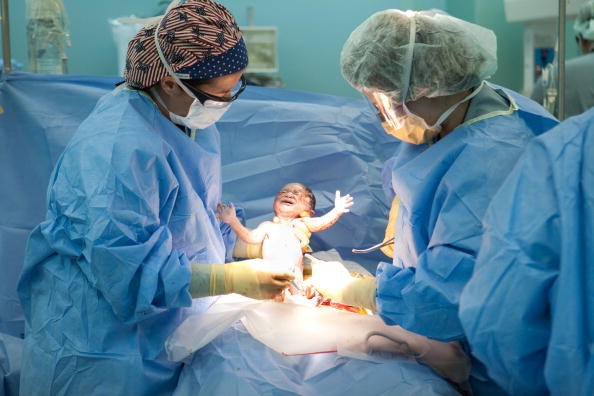
When a baby is born vaginally, he or she gets a dose of the normal, healthy bacteria from the mother's vagina. This dose of bacteria is thought to help form a protective microbiome on a baby's skin. But babies born by cesarean section do not get these bacteria. Researchers are now studying whether swabbing a baby with the mother's vaginal fluid might help partially restore some of these missing microbes.
The research is being done to see if recreating the microbiome of a vaginally born baby can be done, and if it makes any difference to the baby's health.
Researchers at New York University conducted a small study. They compared 7 babies born vaginally with 11 who were born by scheduled cesarean section. Four of the C-section babies got swabbed with some of their mother's bacteria. Over the next month, researchers took many samples at different spots on the baby's skin to see how their microbiomes were developing.
The swabbed C-section babies were found to have developed microbiomes that were more similar to babies born vaginally than to the non-swabbed C-section babies. The swabbed babies had more of two species of bacteria, Lactobacillus and Bacteroides, which are believed to play a role in building up the immune system. These species were nearly absent in the un-swabbed C-section babies.
But does this mean that the swabbed babies will be in better health later in life? Some studies have suggested babies born by C-section have a higher risk of developing asthma, allergies, and certain other health conditions, but whether there is a connection to vaginal bacteria is not known. Pregnant women are usually tested for harmful bacteria, notably Group B strep, that could spread to the baby during birth, but little is known about the complex mix of vaginal microbes.
The study has been expanded, and now includes 84 babies whose skin microbiomes are being tested for a year.
The research was published in the journal Nature Medicine.



